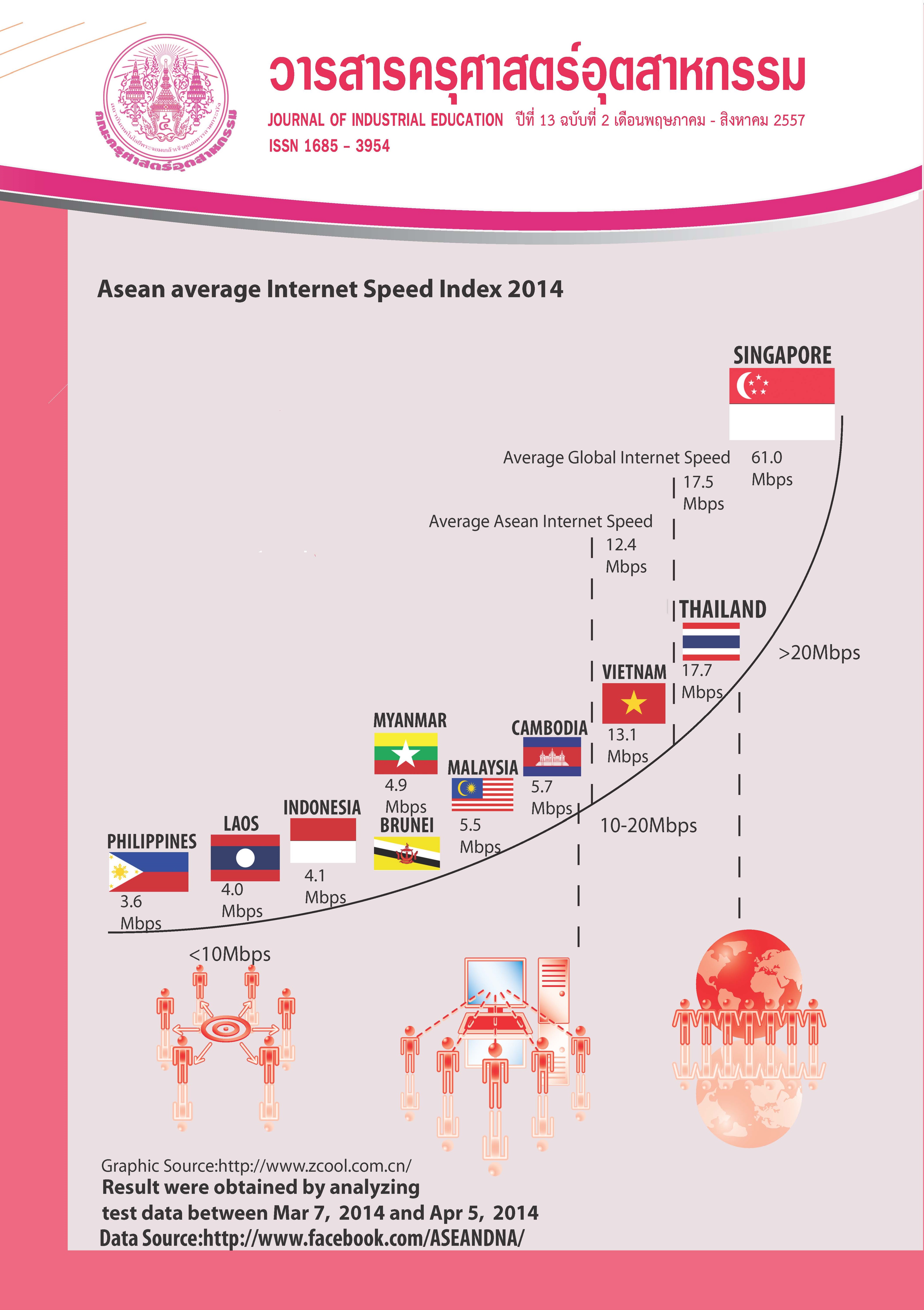Reading Behaviors and Guideline for Promoting Reading Behaviors on Business Education of Vocational and Technical Student’s in Educational Institution of Bangkok Metropolitan
Keywords:
Guidelines for Promoting, Reading Behaviors, Book, Vocational Education, business education, BangkokAbstract
The objectives of this research were to 1) study the reading behaviors of business education students in vocational and technical institutions in bangkok metropolitan 2) indentify the relationship between personal information factors and reading behaviors of those students and 3) study some guidelines for promoting reading behaviors of those students. The sample included 400 business education students in vocational and technical institutions in bangkok metropolitan. The instrument used in this study consisted of a questionnaire form and a focus group form. Data was analized by frequency, percentage, mean, standard deviation, Chi-Square and content analysis.
The results revealed that: 1) most of students like to read fiction and the average time of reading are 1-2 hours per day, for two days per week. In addition,they read 2-3 books per month and most of them like to read at home for fun and entertainment purposes. The most common problem in reading is lazy. 2) Both an overall and in specific areas of reading promotion behaviors are considered at high level by the students. 3) The positive relationship were found between major field of study and both reading time per day and amout of books to read per month. Furthermore, there is a positive relationship between types of institution and students reading time per day. No relationship has been found in all other aspeets.
The four guidelines for promoting reading behaviors were: 1) The self: Students should begin by reading books on the subject they like but not reading only text books. 2) The parents: Parents should support fund to buy books to read and read for being a reading model. They should read the same book along with students. They should know which book students like and arrange the home atmosphere to be more like bookstore; moreover, they should accompany students to bookstores. 3) The educational institutions: They should organize reading promotion activities or programs. Teacher should be a role model by reading with students and integrated reading activities into teaching process, such as using a film, drama, and linking the fiction with subject matter. Teacher should create more colorful learning and more fun. Educational institution should indentify learning need and set up a book corner with more interesting books which are easily to reed. 4) The library and government: The library and government should provide online media such as E - book, Application, Website, etc. to stimulate or motivate students , arrange the reading books according to the ages of the students and organize activities to encourage young writers.
References
[2] ประเสริฐ บุญเรือง. 2555. คนไทยอ่านหนังสือเฉลี่ยวันละ 8 บรรทัด. [ออนไลน์]. เข้าถึงได้จาก: https://www.bangkok.go.th. (วันที่ค้นข้อมูล: 1 กรกฎาคม 2556).
[3] สุชาติ ธาดาธำรงเวช. 2555. อัตราการอ่านหนังสือ ของคนไทย. [ออนไลน์]. เข้าถึงได้จาก: https://www.bangkok.go.th. (วันที่ค้นข้อมูล: 1 กรกฎาคม 2556).
[4] สำนักงานรับรองมาตรฐานและประเมินคุณภาพการศึกษา. 2556. ผลสัมฤทธิ์ทางการศึกษาของนักเรียนอาชีวศึกษา. [ออนไลน์]. เข้าถึงได้จาก: https://www.onesqa.or.th. (วันที่ค้นข้อมูล: 1 กรกฎาคม 2556).
[5] สำนักงานคณะกรรมการการอาชีวศึกษา. 2551. พระราชบัญญัติการอาชีวศึกษา. [ออนไลน์]. เข้าถึงได้จาก: https://www.vec.go.th. (วันที่ค้นข้อมูล: 1 กรกฎาคม 2556).
[6] Yamane, T. 1973. Statistics: An Introductory Analysis. New York: Harper and Row.
[7] ดวงหทัย เมธา. 2551. การจัดกิจกรรมส่งเสริมการรักการอ่านของนักเรียนชั้นประถมศึกษาปีที่ 4. วิทยานิพนธ์ปริญญาศึกษาศาสตรมหาบัณฑิต สาขาวิชาประถมศึกษา บัณฑิตวิทยาลัย มหาวิทยาลัยเชียงใหม่.
[8] พรรณี ลีกิจวัฒนะ. 2554. การประเมินความจำเป็นในการพัฒนาสมรรถภาพครูเทคโนโลยีสารสนเทศระดับมัธยมศึกษาตอนต้นของโรงเรียน สังกัดสำนักงานคณะกรรมการการศึกษาขั้นพื้นฐาน. วารสารครุศาสตร์อุตสาหกรรม. 10(1), น. 11-20.
[9] แม้นมาส ชวลิต. 2544. แนวทางการส่งเสริมการอ่าน. (ฉบับแก้ไขเพิ่มเติม). กรุงเทพฯ: บรรณกิจ.
Downloads
Published
How to Cite
Issue
Section
License
"The opinions and contents including the words in papers are responsibility by the authors."
"ข้อคิดเห็น เนื้อหา รวมทั้งการใช้ภาษาในบทความถือเป็นความรับผิดชอบของผู้เขียน"



